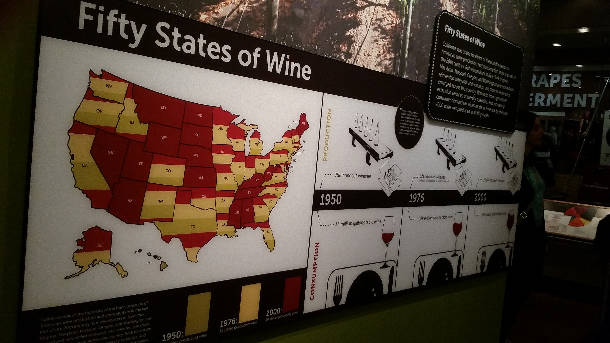MONDAY BEER LINKS, MUSING 06.06.16
Inside the Underhanded Effort to Unseat Craft Beer in Seattle.
A serious bit of reporting. “No one familiar with Seattle’s beer industry thinks that AB is alone in the kinds of practices uncovered by LCB investigation. With more violations expected to be announced later this year, it’s possible that craft brands could be implicated in similar schemes. But the details revealed by the state, paired with AB’s growing influence over the distribution networks smaller breweries rely on to reach customers, do provide a clear picture of the kind of cutthroat deals that go into delivering a pint to your hands, often at the expense of small, independent producers.” [Via Seattle Weekly]
On Disclosure and Early Reflections of Being a Freelance Beer Writer.
I find this statement deeply troubling: “The notion of integrity in journalism is flawed.” It opens the penultimate paragraph, which includes more disturbing suggestions. I don’t want to get into a pissing match, so I will simply point to the Society of Professional Journalists code of ethics. It makes it pretty clear why integrity still matters. [Via Total Ales]
Why Is the Smithsonian Collecting 50 Years’ Worth of Beer Artifacts?
 As the photo I took Saturday at Smithsonian’s National Museum of American History illustrates wine has a head start. But this Q&A with Susan Evans McClure, the Smithsonian’s Director of Food History Programs, indicates how wide sweeping its collaboration with the Brewers Association will be . “So, we’ll be looking at advertising, agriculture, industry, business history, community and all of these strands that people might not even think are related to brewing. I’m particularly interested in the agriculture stories of brewing. How does the farmer who feeds spent grains to his cows relate to the fact that Americans are drinking more craft beer? That, to me, is a much more complex story of American history.” [Via Punch]
As the photo I took Saturday at Smithsonian’s National Museum of American History illustrates wine has a head start. But this Q&A with Susan Evans McClure, the Smithsonian’s Director of Food History Programs, indicates how wide sweeping its collaboration with the Brewers Association will be . “So, we’ll be looking at advertising, agriculture, industry, business history, community and all of these strands that people might not even think are related to brewing. I’m particularly interested in the agriculture stories of brewing. How does the farmer who feeds spent grains to his cows relate to the fact that Americans are drinking more craft beer? That, to me, is a much more complex story of American history.” [Via Punch]
The Great American Beer Brawl 2016.
Serious Eats invites “beer experts and aficionados from around the country to state the case for their favorite beer towns.” The seven featured are New York, San Diego, Denver, Asheville, Portland, Tampa, and Burlington. There’s also a poll in which readers can vote for their favorite. When I last looked “other” was winning. Fun to compare to a list from 2000, when in an interview in Westword magazine the late Michael Jackson listed seven cities. They were (west to east) Seattle, Portland, San Francisco, Denver, Austin, Philadelphia, and Boston. [Via Serious Eats]
Frothy Minnesota market might not bear much more craft beer.
On any given Monday I could link to multiple “craft beer bubble” stories. I promise not to, but this is well reported and on a local (well, state) level. “It’s not my fault that there are 100 breweries in Minnesota. But brewers get angry when I tell them their beer is not as good as the ones already on our list.” [Via StarTribune]
Selling Millennials Through Myths & Lies (Part 2 of 3).
Since I linked to millennials and beer last week, might as well make it wine this week. [Via SBV Wine]
FROM TWITTER
Oh, what the heck, most bubble talk. Click on the time/slash date to read the conversation.
Another "Craft Beer Bubble?" article. I have some thoughts… (con't) https://t.co/W8y4NqYltv
— Scott Metzger (@beermonkey) May 31, 2016
Stan, this isn’t a question of acting unethically. I’m a professional writer and I am careful to act within both SPJ and NUJ guidelines.
The context of the post was an effort to explain some ways I make a living – that in itself a legal requirement according to ASA guidelines here in the UK. What I’m not a fan of is being subtly referred to as a ‘shill’ by a professional publication such as Beer Advocate, who’s response when I tried to open a dialogue with them about their frankly unethical comments in the editorial of their most recent issue, was to block me on twitter. It was this that provoked the dialogue within the latter half of the post.
If one group of journalists earns a living using a slightly different method to another set of journalists and then points the finger at them and says “We think what you’re doing is wrong” without actually knowing the facts. Well then I don’t have much hope for that first set of journalists.
Hi Matt – I appreciate your transparency and did not make the comment to question your ethics.
It is the statement that ““The notion of integrity in journalism is flawed” that bothered me. Admit it or not, we all have conflicts and biases. Readers count on us to sort that out, and “the notion of integrity” helps us do that.